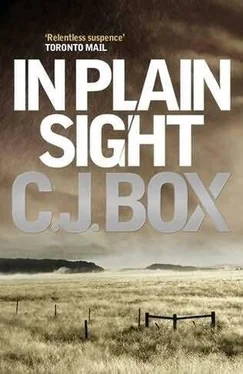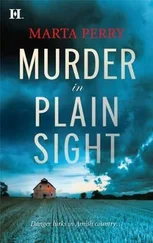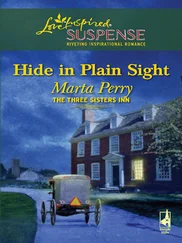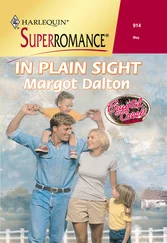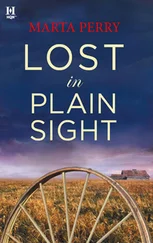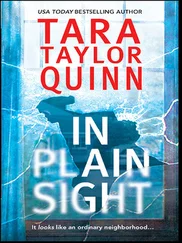At the top, he parked and got out near the fence-it was practically ten feet high-and survyed the hillside he had driven up. The cowboy had finally turned his horse and was continuing back down the hill, toward the cattle on the bottom of the basin.
Keeley got out and took a moment to look around. He had never seen country so desolate, and so mean. It reminded him of one of those old western movies, but worse. The movies always showed desert as being hot and dry. This was high and rough, with dirty snow. He preferred desert, he thought; at least it was warm. And except for that laughing cowboy down there, Keeley was the only man on earth for as far as he could see. There were no cars on the highway.
Keeley snapped back the bolt of the rifle, saw a flash of bright brass as the cartridge seated, and aimed the rifle across the hood of his pickup. He leaned into the scope, putting the crosshairs just below the nape of the cowboy’s neck, on a band of pink skin between the scarf and the collar, and pulled the trigger.
The shot snapped out, an angry, sharp sound, and the cowboy slumped to the side and rolled off his horse. Keeley watched as the dog trotted over and started licking the cowboy’s face, which almost made Keeley feel bad until he realized the damned dog was tasting blood, so he shot it too.
Keeley got back into the stolen pickup with his stolen gun, said, “Fuckin’ cowboy, anyway,” and turned the vehicle toward the highway, to drive north, to find that game warden.
TWO DAYS LATER, MARYBETH PICKETT THREW OPEN the front door after her morning walk and shook their copy of the Saddlestring Roundup. Joe and the girls were having breakfast.
“Wacey Hedeman is dead, that bastard,” she said, showing Joe the front page.
Sheridan said, “Good!”
Lucy said, “You probably shouldn’t say ‘good,’ Sherry.”
“But I mean it,” Sheridan said fiercely. “I hate- hated -that man.”
Joe glanced at his wife and saw that Marybeth had the same reaction as Sheridan. Because Wacey had been the man who had shot her, causing the loss of their baby.
“You know how you wish things, bad things, on people?” Marybeth said. “I have wished harm to Wacey ever since he shot me. But to read now that he’s really dead… it’s strange. I feel sort of cheated. I wanted him to know how much I hated him.”
Joe was not surprised at Sheridan’s and Marybeth’s reaction, but it was disconcerting to see such mutual anger on display.
Joe looked at Lucy, trying to gauge what she was thinking of all this. Lucy shot her eyes back and forth between her mother and her sister. She had been three at the time, while Sheridan had been seven. Lucy seemed to take the comments in stride, probably since she’d grown up with the whole Wacey Hedeman thing-it was part of the family history.
“It says he had some kind of seizure,” Marybeth said, reading the story. “They’re still investigating. He might have been poisoned.”
“Poisoned? By another inmate?” Joe asked.
“It doesn’t say,” she said. “But I guess I really don’t care, considering what he did to us.”
“But we’re tough!” Lucy said, repeating something she’d heard over the years. It made Marybeth smile, and wipe a tear from her cheek.
“We’re tough, all right,” Marybeth said.
We have enslaved the rest of the animal creation, and have treated our distant cousins in fur and feathers so badly that beyond doubt, if they were able to formulate a religion, they would depict the Devil in human form.
– WILLIAM RALPH INGE, OUTSPOKEN ESSAYS, 1922
If you walk around with a hammer, everything starts to look like a nail.
– UNKNOWN
IN THE MONTH SINCE SHE’D BEEN REPORTED MISSING, Opal Scarlett-or her body-had not turned up. Not only that, but her car was missing. It wasn’t that she was missed for sentimental reasons. She was missed because she held the keys to so many projects, so many relationships, so much history. Not until she was gone did most people within the community realize how integral Opal Scarlett was to so many things. Opal was on the board of directors for the bank, the museum, the utility company, the Friends of the Library. She was one of three Twelve Sleep County commissioners. Her annual check to fund the entirety of the local Republican Party had not arrived. The GM dealer had already taken the order for her new Cadillac, and it sat in the lot with a SOLD sign on it.
Joe kept expecting something to happen. A call from a ranch downriver saying a body had just washed up on the bank. A postcard from some faraway island, or a phone call to one of her sons to bark an order-something.
None of those things had happened. Opal’s status was in a dread state of limbo and rumors that were starting to fly had practically destabilized the entire valley.
Joe had carefully read the report issued by Sheriff McLanahan’s office, and he had spoken at length to Robey Hersig. It didn’t make sense that her body had not turned up. The river was, as Tommy had pointed out, surprisingly low and slow. Spring runoff hadn’t started yet. There were places near town where a person could walk across the river, hopping from stone to stone. The likelihood of Opal’s body washing downriver without being seen was remote.
Joe had heard some of the theories being bandied about town. Three garnered prominence:
Tommy Wayman threw her in the river, all right, but that was after he strangled her and weighted the body down with stones;
Hank was driving by and happened to see Opal crawling out of the river around the bend from where Tommy threw her in. Hank saw his opportunity and bashed her over the head with a shovel and took the body back to his side of the ranch and buried her, thinking he would eventually get the ranch from Arlen; and
Opal was fine. The brief swim scared her, though, and when she reached shore she got in her car, drove to Vegas, and found a young lover named Mario. She’d be back, eventually. There was even a reported sighting of her from a county resident who swore he saw her with a tall, dark young man in a casino on the strip. The report was credible enough that McLanahan dispatched Deputy Reed to Las Vegas, where he ran up an expense account that created a minor scandal at the city council meeting.
Joe stood on the sidelines with growing frustration. This wasn’t his case in any way and his involvement was peripheral. But it drove him crazy that no progress had been made. He suggested to Robey that maybe he could be involved in the official investigation, and Robey shook his head no, saying the sheriff wanted no outside interference. “Since when would we call in the game warden for a missing-person’s investigation?” Robey asked. And Joe knew better than to bring it up with Director Pope. Joe wasn’t sure he could help the investigation along. But he knew he’d feel better if he was a part of it.
SINCE THAT MORNING in April, details started to leak out about how the Thunderhead Ranch had been run and the difficulties and complications that were resulting from the matriarch’s disappearance. Joe had an appointment with Robey Hersig the next evening to discuss what was going on. Robey had been cryptic in his request for a meeting, and Joe had been intrigued.
“We may have something brewing here that none of us anticipated,” Robey had said to Joe on his cell phone. “The more I dig into it, the worse it gets.”
“So tell me about it,” Joe said.
“Not over the phone, no way.”
“Are you serious? Do you think someone may be listening?”
“You never know,” Robey said, hanging up.
Читать дальше
